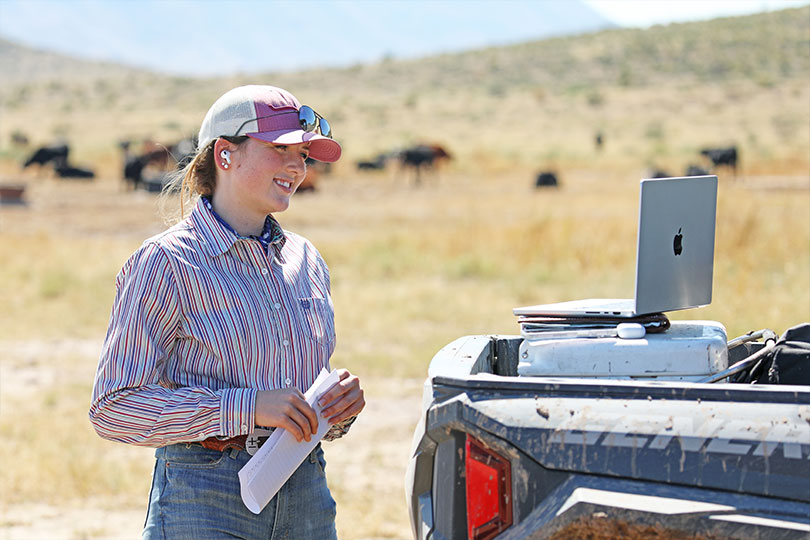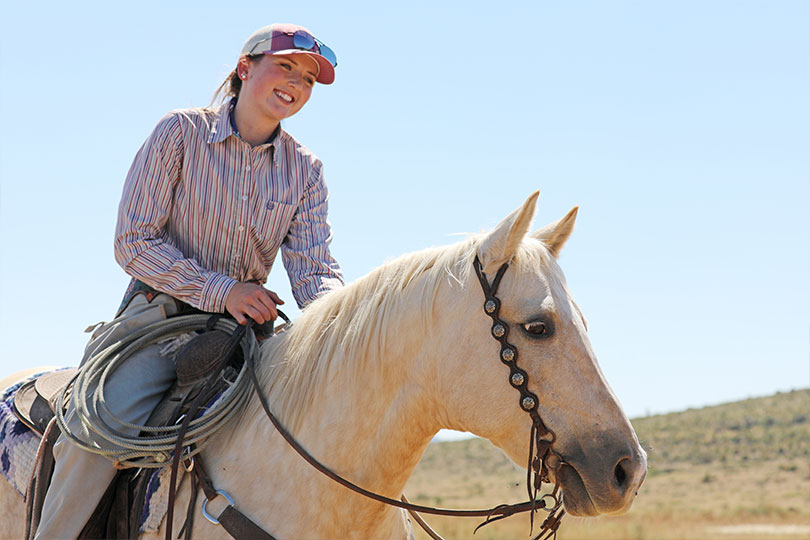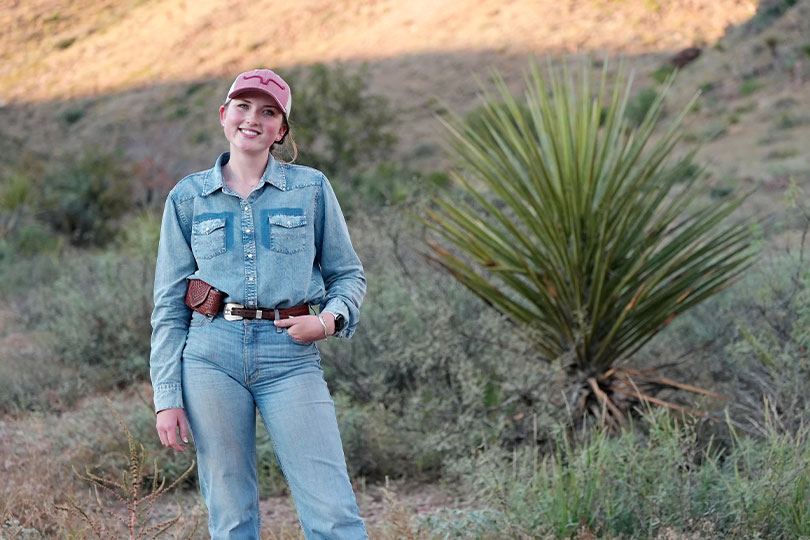By Julie Tomascik
Editor
Some days start in the saddle and end on a Zoom call for Sarah Roderick. The Far West Texas rancher balances her life on the family ranch near Marfa with a career helping farmers and ranchers nationwide adopt sustainable practices.
Roderick is the events and outreach coordinator for AgSpire, a company that partners with farmers and ranchers across the U.S. to improve their operations through regenerative and conservation-based practices.
But her roots are firmly planted in ranch life. She and her family run Roderick Cattle Company, managing about 60,000 acres near the Mexico border.
“My job is fully remote, which truly gives me a lot of freedom out here on the ranch,” she said. “It lets me live the best of both worlds.”
Her work with AgSpire gives her a front-row seat to the challenges and innovations shaping agriculture today. Roderick helps connect farmers and ranchers, primarily in the Great Plains, with technical assistance and incentive programs that make conservation practices possible.
“There’s a huge learning curve with working in the Great Plains compared to Texas. The region is vastly different from my home,” she said. “But it’s been so rewarding because I provide incentive payments for farmers who adopt our practices. Usually, farming and ranching isn’t very financially stable, so those payments allow farmers and ranchers to build their operations for the future.”
That perspective has also given Roderick the opportunity to help producers connect conservation goals with the work happening on farms and ranches.
“My work helps bridge the gap between corporate environmental goals—like Scope 3 emissions and carbon neutrality—and real-world agricultural operations,” she said. “We support producers at no cost, equipping them with resources and tools to build operational resiliency and long-term success.”

That mission mirrors her own family’s story.
They have been ranching in Far West Texas since the 1850s. Her parents took over the current operation in 2008, transitioning the herd from Hereford to mostly Angus to meet market demand.
It was a financial decision, Roderick said, but also one that reflected how agriculture has to keep adapting.
“Part of being in ag is matching what the market and consumers need,” she said.
They run about 750 cows across rugged desert terrain where drought, labor shortages and wildlife pressure test even the most experienced ranchers.
“Water is number one,” she said. “We’re in a serious drought, and even if we wanted to hire more help, it’s just not available. We’re all utility players out here. Whatever the day brings is what we get to do.”
Her days might include bookkeeping and marketing calls one moment, then horseback work, checking troughs or repairing water lines the next. But the variety, and the view, keeps her going.
“There’s nothing like seeing a fresh calf on the ground because it’s a reminder that every day is a new beginning,” she said. “It’s a cycle, and that’s what life is, too.”
Balancing her work with producers from her home in El Paso and her life on the ranch in Marfa has strengthened her commitment to agricultural advocacy.
“I stepped into a professional role focused on strengthening supply chain resiliency and amplifying the voices of producers at the national level. I work closely with farmers and ranchers to connect regenerative practices to real-world outcomes, all while staying rooted in my own ranching heritage,” she said. “I know exactly what farmers and ranchers are going through because I live it.”
That connection also drives her involvement in Texas Farm Bureau.
Roderick is active in county and state Young Farmer & Rancher (YF&R) activities. She serves on the Texas Farm Bureau YF&R Advisory Committee and is the YF&R chair for El Paso County Farm Bureau.
“Today, I’m living the dream: serving both the corporate and agricultural worlds, helping producers tell their stories and grow their operations,” she said.
Excellence in Agriculture Contest
Roderick is a finalist in TFB’s Excellence in Agriculture Contest.
The contest recognizes young men and women ages 18 to 35 who are involved in agriculture but do not earn their primary income from a farm or ranch enterprise.
Information on the contest and TFB’s YF&R program can be found online at texasfarmbureau.org/YFR.



Leave A Comment